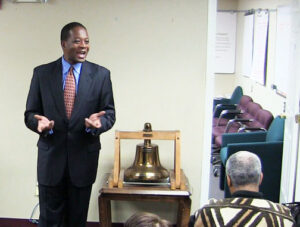Believe it or not, the fear of speaking in public is a genuine phobia. It’s a type of routine concern wherein someone feels extremely anxious, and might even experience a panic attack. In time, people terrified of public speaking try as much as possible to hide their fright by avoiding the process altogether. While employees choose to pass up important assignments and promotions that would demand speaking in public, managers and entrepreneurs treat public speaking with evasion. Here are some tips on how to battle anxiety and overcome the fear of holding a speech in front of a wider audience.

Be prepare and know the ins and outs of your topic
Practice makes perfect, in every activity field or domain. In public speaking, the better you can relate to your topic, the higher chances to have to like it and care for it. When you know so many things about a subject, it’s almost impossible to get off track or make a mistake. And even if you do, it won’t be that embarrassing to apologize (in a cordial, funny way) and move on.
Stay organized
Have your information carefully planned ahead of time. Structure your speech and make sure your props, visual and audio aids are in place and functioning properly. Keeping everything organized and ready will help control your nerves. To keep on track with everything and be sure you’re not forgetting anything, use flashcards. Last but not least, check everything once again with at least 24 hours before the presentation.

Practice makes perfect
Battling the fear of public speaking can be tough, although it’s not something impossible to achieve either. The key to mastering a presentation is to practice as often as you can. For example, you could hold your speech in front of your best friends or relatives; you trust them, so you don’t have to worry that they’ll judge you. When you’re done, ask for their honest feedback and add improvements.
Envision your success
Close your eyes and envision that your speech went well. Think positive and have an upbeat attitude; it will help you gain confidence and ward off your anxiety. It helps to breathe deeply, too. Do it before getting up on the stage, as well as throughout your speech. Studies have shown that when people can envision their success, they have higher chances of forgetting about their fears. Basically, when your brain is taught to think straight and look on the bright side, it doesn’t have time to worry about the bad things, too.
Stop thinking about the audience, focus on your material
People are used to focusing on new information, rather than on the way it is presented. If what you have to say is engaging enough, they might not even notice that you’re nervous. Grab their attention using powerful words; share meaningful facts and don’t let them take their eyes and ears off of you. While you stay focused on the material you’re presenting, it can be a good idea to take a short break to welcome questions. Don’t worry, you’ve got this! It’s your presentation and you’ve prepared for it – keep that mind.

Be realistic and don’t aim for perfection
There’s no such thing as the perfect speech, and that’s ok. Even the most experienced orators make mistakes, so you’ve got nothing to worry about. Battling your nervousness is something achievable, and as long as you can accept that you’re not perfect everything will be just fine. It’s really important for speakers to be realistic about their expectations. Don’t beat yourself up by assuming everything will go wrong.
Speaking in public doesn’t have to be such a terrifying endeavor. In fact, it’s a complex process that everyone can master, provided that you’re willing to abide by a few rules. First of all, your speech must be based on honest claims. This is fundamental; you should want to engage an audience, and you can only do that with solid information. Many people dread public speaking because they assume their audience will judge them for every mistake made while on stage. That’s not quite true, on the contrary. Showcasing vulnerabilities can be a good thing because flaws and imperfections are elements that make people more humane.
